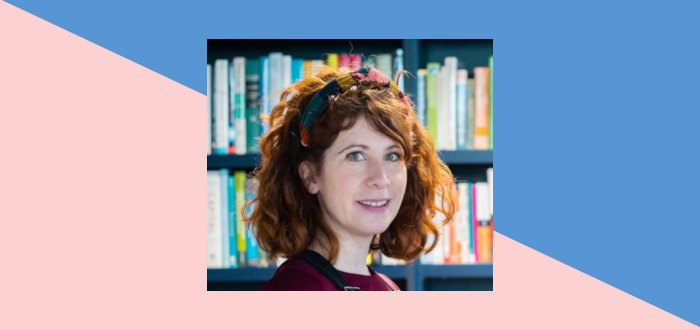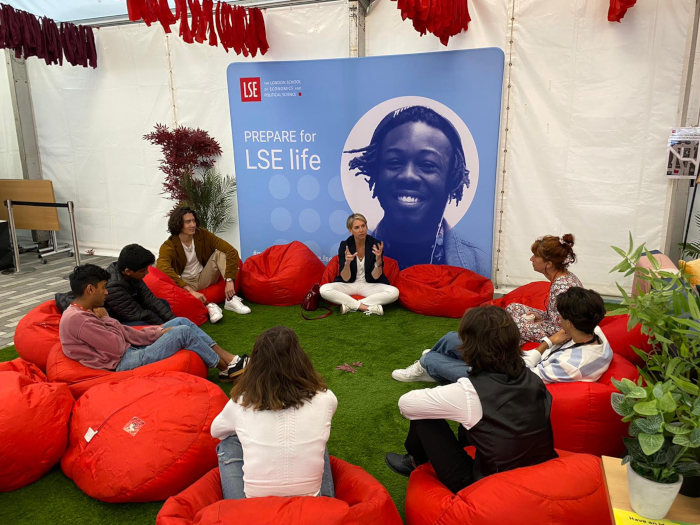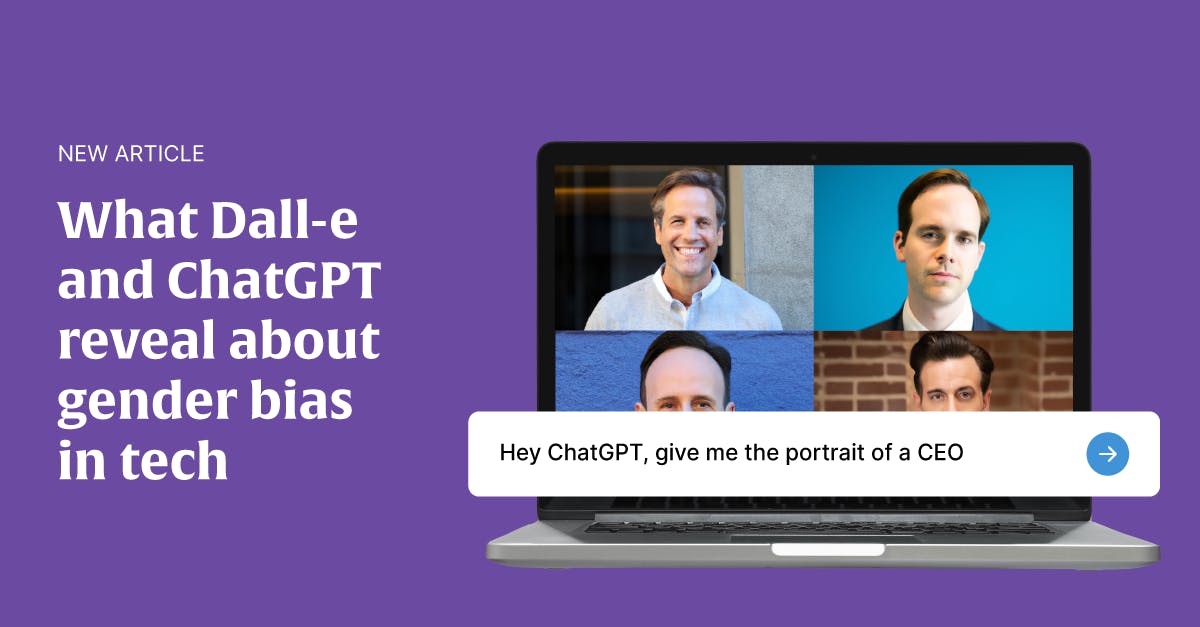Meet Willeasy, the company revolutionising global accessibility
Ahead of Web Summit 2023, we spoke with Willeasy’s William Del Negro about how his organisation supports...

LJ Silverman, head of LSE Generate, talked to us about these sustainability goals, helping founders to learn from failure, the importance of the social sciences to entrepreneurship, and the accelerator’s global ambitions.
Our remit is very much around the UN SDGs. All businesses that come through our funding competition and through our acceleration programmes and the numerous events that we run need to be aligned with at least two United Nations Sustainable Development Goals. We are of the belief that all entrepreneurship is social and if not, it’s anti-social.
This is not something that we’re pushing down the throats of students. They come into the university with the belief that purpose and profit are on the same level. If not they’re not interested. They only want to work with companies or start their own where that’s the case. LSE Generate is not only looking at startups with a charitable focus. It’s more about commercially viable businesses that have strong socially responsible values that are in the DNA of the business. Values that are baked in at an early stage rather than just sprinkled on nicely as a PR thing.
LSE is really international: over 70 percent of our students are from outside of the UK. We have a really vibrant, dynamic, quite innovative programme in London where we’re based on the LSE campus and what we’re looking to do now is replicate the successes of that across the globe. We already have hubs established in San Francisco, LA, Mumbai, Tel Aviv, Chengdu and Delhi. And we’re so excited about the recent opening of our new office in Lisbon, which is our first European base. The next step is opening up in Nigeria, which will be our first African hub.

A gathering at LSE Generate. Image: LSE Generate
When planning on our first European hub we were deciding between Lisbon and Berlin. Berlin is fantastic but it is already more established and felt quite saturated. For us, the whole ecosystem is really important, and Lisbon felt like an exciting place with a real emerging ecosystem, especially around social impact.
We are still finding our feet and working out what model works. What we don’t want to do is just take the London model and plonk it all over the world, assuming that different geographies will just accept it. We’re working with alumni in Lisbon and beyond.
We’re asking them: what do you need in this geography? What is missing and what can LSE Generate add to it? I think the key is to be working with local innovators, local alumni, listening to them, and then responding to that rather than just swooping in and going well, it’s worked in London, it will work here.
We are not shying away from the fact that we need technology; it is usually the enabler for social sciences innovations. It’s more about getting the message out about social science’s version of STEM, which is SHAPE (Social Sciences, Humanities and the Arts for People and the Economy). Part of our role within Generate is to raise the brand so that people talk about SHAPE in the same way that they talk about STEM. And to know that they’re not in competition with each other, they can co-exist.
The message that we’re trying to put across is that a combination of social sciences and innovation is a powerful force for good. If the last year has taught us anything, it is that we really need both parties working together.
Practically, what that looks like is a lot of dialogue, fireside chats and general events where when we bring together artists, academics and entrepreneurs, and get them talking about the same problem. They come at it from different angles, which is really exciting. We also run funding competitions where the panel won’t just be tech investors, but also academics, creatives and people from the local community.
I think entrepreneurship is very much a family, a community. It takes a village to raise a startup! And adding to this, we originally existed primarily to support startups but we realised during COVID that everyone needs to be developing that entrepreneurial mindset in order to survive the highs and lows. And all of those softer skills that entrepreneurs have? Everyone needs them now, even the corporates.
So our remit has expanded from helping founders to helping anyone that is graduating from university and needs to have this really strong skillset because you can’t survive or thrive without it.
I’m glad you like the sound of it! This came from when we did a trek to San Francisco a few years ago and took a group of students. At an event we attended, one of the first questions the speaker asked was: tell me a time when you failed. A lot of our students were of the mindset: “I wouldn’t say it was necessarily a failure. It was more of a blip.” Because failure isn’t really talked about like it is in the US.
We realised that LSE students have always been the creme de la creme and never really failed at anything, so when they’re starting a business, the first thing that happens is that they might fail. And unless they are equipped with the skills to deal with failure and celebrate it and learn from it – the most important thing – they’re really going to struggle.
We found that for many students when they didn’t win a funding competition or weren’t getting the traction they needed early on they just left. We didn’t see them again. It was a real shame for us because we could see the talent, we could see the potential and they didn’t see it in themselves. So we kind of go to extremes: we get them up on stage with a spotlight and a microphone and they have to stand up in front of their peers and say: “I’m going to tell you about my failure”. And they get a big cheer because everyone is supporting each other.
The audience asks them questions like “why do you think it happened?”, “what could they do to prevent it happening again?”, etc. By the end of it, they have normalised the concept of failure. They’ve got some ideas on how to make sure it doesn’t happen again because it’s a two-pronged approach, isn’t it? You can’t just celebrate failure, because failure in itself isn’t amazing if it is not connected to a lesson.
I think most people are aware of the stats around access to funding for female entrepreneurs, especially the stats for women of colour. [A report from Crunchbase found that, as of July 2021, black female startup founders received just 0.34 percent of the total venture capital spent in the US.] And obviously, with LSE being international, it’s an important issue for us. It just sat awfully with us that such a small percentage of female founders get access to investment. It was crazy to think that this disparity in funding exists for 50 percent of the population and 50 percent of the students at LSE.
We realised that it wasn’t going to change overnight so we repurposed a large amount of our budget into getting to the bottom of what was happening by working with researchers and PhD students that studied this area. We brought an in-house gender equality consultant to work with us. We created a new code of conduct, and slowly over two, three years, it started to change. The ElleSE program came to fruition.
It’s easy to say you want 50 percent female founders at every event, 50 percent female judges on our panel, 50 percent female advisors on our board, but when you realise that there are fewer female founders working in some industries it can be tempting to pad it out with a few more guys onto the panel. The code of conduct was so valuable in terms of having something we could be accountable to because if we can’t find 50 percent females for a panel, then we don’t run the event.
After two years of these quite strict and robust guidelines for every event something started to shift. We had built up a strong group of female founders. But we need to bring guys into the fold now because the conversation is never going to shift if men aren’t involved in the conversation. You can shout it from the rooftops, get excited and support female founders, but men need to be part of this too.
We’ve been addressing this with a number of International Women’s Day events where you weren’t allowed to come as a female founder unless you brought a guy with you. Then things really started to change and it’s just been announced that LSE is the university with the most female founders in the entire UK.
We won a national award last year for inclusive education and that then led us to doing a lot more work around black female founders, as well as black founders overall and underrepresented communities. And that’s where we worked with Web Summit in relation to Amplify.
One in particular that I absolutely love is Here We Flo. The founders are Tara Chandra and Susan Allen. It’s a feminine hygiene company. They create tampons and sanitary towels but there is a big education element to it as well so it is not just the product. But the product packaging is really attractive – the tampons come in a holder shaped like an ice cream tub because when you have your period, you crave ice cream! The branding is just brilliant and Tara is the most feisty of founders that I’ve ever met.

Products from LSE Generate alumnus Here We Flo. Image: Here We Flo
Tara also fits this virtuous circle practice that we have at LSE, which is about really nurturing students as they come through their programme and then when they graduate, they come back and mentor other students – they give back. Here We Flo tampons are stocked in the toilets of all LSE buildings so they’re very much part of the DNA of the school now. And we have a schools programme that Tara helps out with. The idea is if we can work with school students, by the time they get to LSE, they won’t have those hangups around, for example, fear of failure.
Another success story is Allbirds. We worked with them when LSE Generate was just starting out. If you have ever been to San Francisco, you’ll see everyone wears these sustainable shoes. The reason that I love them is that they’ve got initiatives around climate change and reducing your carbon footprint. They are focused on regenerative agriculture, responsible energy and carbon offsetting.
Tim Brown is the founder and he came to us about eight or nine years ago. And at the time he was crowdfunding and we loved the idea of a sustainable woolen shoe. Recently Allbirds has just gone through a Series E funding round (US$100 million). They’re very successful but they find time to come back and speak to the students, mentor them, give advice – and give away shoes!
Allbirds were actually in the news recently because when COVID happened, they gave out around a million pairs of shoes to frontline workers in the NHS and in San Francisco too. They are very much part of the ecosystem and not just about selling shoes. And I think that is probably what is quite magical about LSE businesses. They’re never just the product, they are always focused on something beyond the product like: How can we raise awareness of a particular issue?
This is where that combination of social sciences and technology comes together. You have the technology behind the development of the shoe, and then the social sciences component that comes in and just lifts up to this whole new level.
Main image: LSE Generate
Ahead of Web Summit 2023, we spoke with Willeasy’s William Del Negro about how his organisation supports...

We asked Dall-e and ChatGPT to show us what a founder and CEO of...